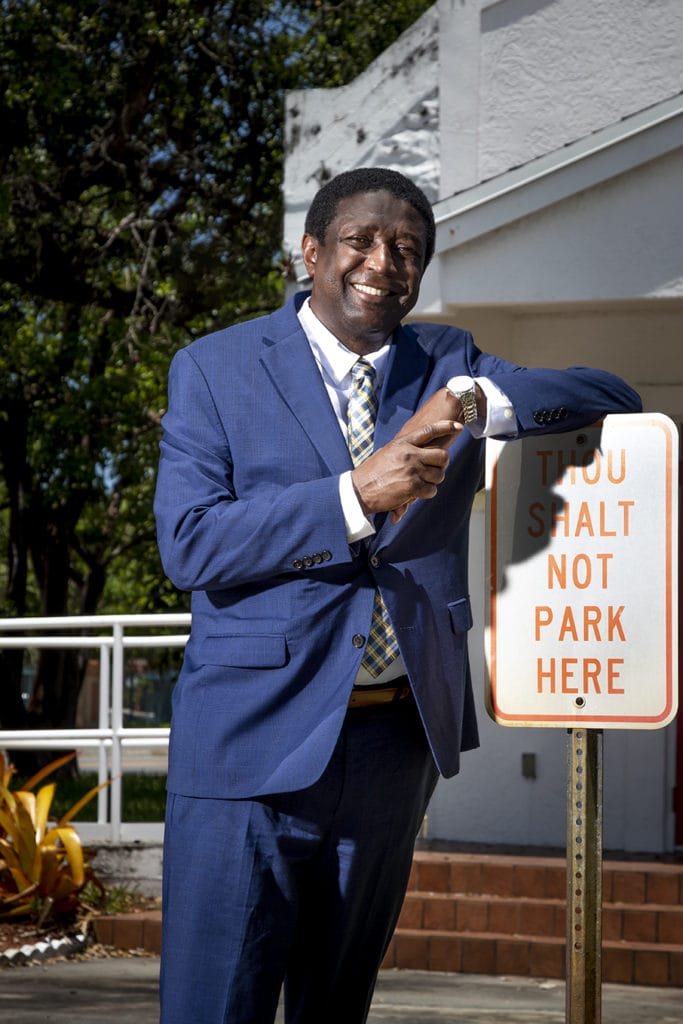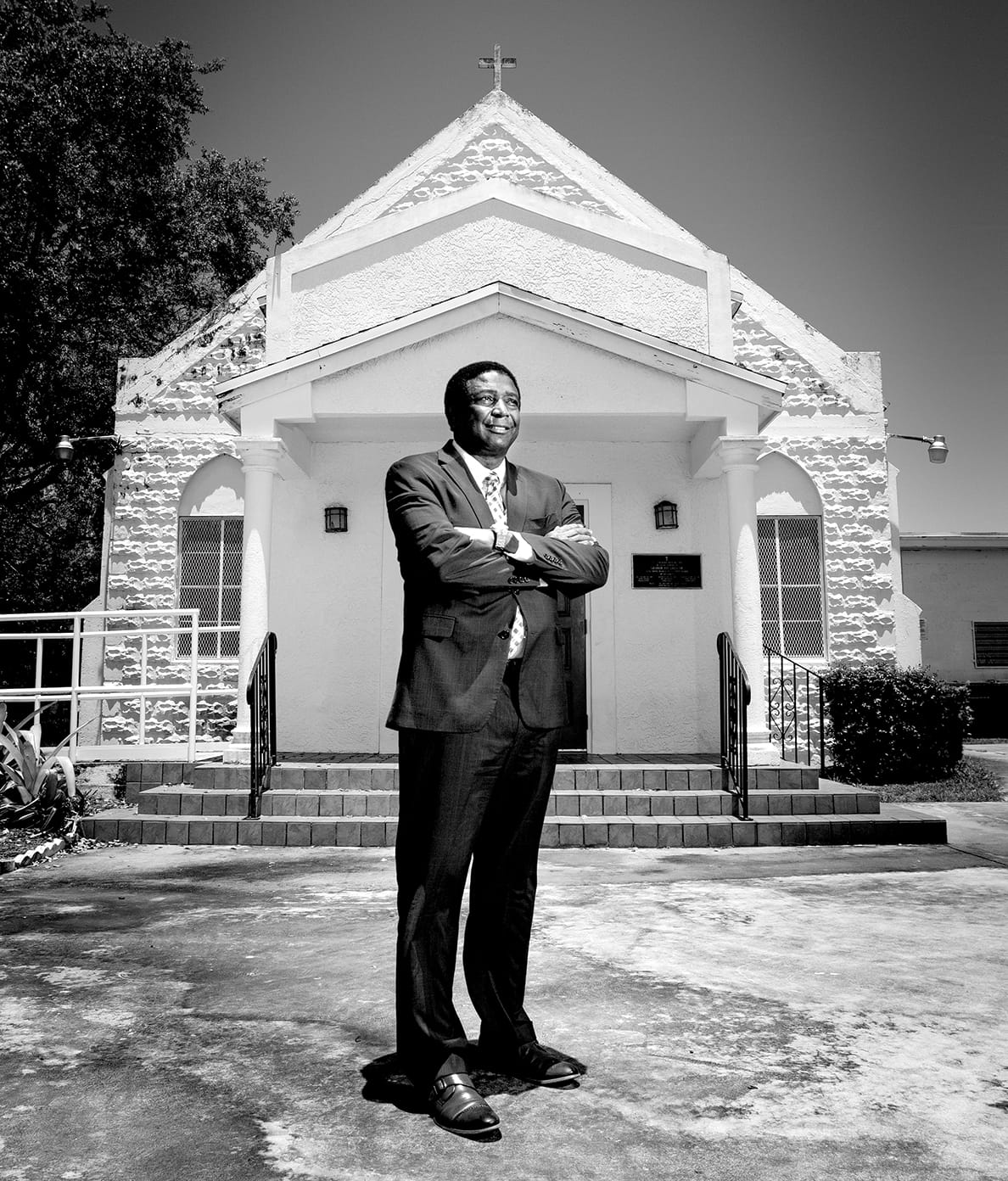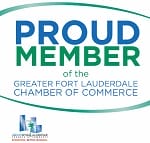By Ryan Pfeffer
Portraits by Eduardo Schneider
Broward County has a mayor. If this is news to you, don’t feel bad. The person who occupies the position is chosen by the nine-member Board of County Commissioners. It’s normally a largely ceremonial role that doesn’t hold any special political power, unlike Miami-Dade County’s strong mayor system. But Dale VC Holness’ term has not felt ceremonial. The District 9 commissioner was selected as the mayor of Broward County in November, just a few months before COVID-19 shut his county—and its biggest industries—completely down. Then, in the midst of that, protests against racism that were occurring nationwide also came to Fort Lauderdale.
Through it all, Holness has stood shoulder to shoulder with Florida Gov. Ron DeSantis at press conferences, fielded tough questions about economic uncertainty and racial injustice, and shown the steadiness of a seasoned politician—which he is.
Holness immigrated to South Florida from Jamaica at 17 and has served in local government since 2004, when he was elected as a Lauderhill city commissioner. Over the years Holness has earned a reputation for tackling issues of racial and economic inequality. He has pushed for affordable housing, created the Lauderhill Regional Chamber of Commerce and advocated for Broward County’s civil citation program, which aims to prevent people from getting sucked into the criminal justice system for minor offenses. Venice spoke to Holness on June 4, just four days after peaceful protests turned violent in Fort Lauderdale when a White officer shoved an unarmed Black protester to the ground.
Now that you’ve had a few days to reflect on the public protests in Fort Lauderdale, what is your overall reaction of what happened?
I am grateful that people came out to show solidarity and let their voices be heard in response to the killing of Mr. George Floyd. That’s the symptom of major issues that we have not faced up to as a country—and as a community.
Let me give you some statistics: As a Black person in Broward County, I’m twice as likely to be pulled over while driving as someone who is White, according to American Civil Liberties Union studies. Today 51% of the convictions that are held in the Broward County courthouse are Black people. Blacks only make up 30% of the population in the county. Blacks make up 16.9% of Florida’s population, yet they are 45% of the people in the Florida prison system.
So there are huge structural things that we need to fix to address the underlying issue of why this police officer was so cold and callous and showed total disregard for another human being.

In the wake of a pandemic and massive civil unrest, Holness looks to provide leadership and beacon of hope for a better future.
One specific incident at the Fort Lauderdale protests got national attention. A White officer shoved a Black protester to the ground while she was on her knees with her hands up. But then that officer was immediately pulled aside and reprimanded by a fellow officer. How do we make sure our police force has those kinds of officers, the ones who call out bad behavior when they see it?
It’s unfortunate that too often, the police don’t hold their fellow officers accountable for their behavior. And, in fact, the police unions are usually built in such a way that they protect these bad behaviors. But it was very refreshing to see that officer do what she did.
When I was 18 years old, I faced that kind of situation. I stopped at a pay phone to call a friend. The White female clerk inside the gas station called the cops and said I didn’t put any money in. She thought I was casing the place or something. The cop grabbed me, pulled me over to my dad’s car, and spread me. It was really rough, and it was almost as if I was guilty of something. And the saddest part was that there was a Black cop who just watched and looked down. He didn’t say a word. I can tell you I’m still shaken from that experience. So the police have to ensure that those bad cops—and they know who they are—are removed from the force because they spoil the work that all the good ones do. By and large, the majority of police officers do good work and put themselves on the line to protect the community.
Unlike city mayors, the people of Broward County usually don’t have a very close relationship with their county mayor. But your term has been different. Issues like COVID-19 and Black Lives Matter have made you much more visible than previous mayors. Do you think the county has benefited from this?
Absolutely. I think that although you don’t have the same executive power of Miami-Dade County’s mayor, you are still figuratively the leader of the county. People are looking to you to find solutions. You can bring people together and have open, honest discussions on the issues and build and strengthen the community.
You came to Broward County when you were 17. What were your impressions back then?
I lived right by the Swap Shop. My impression was for the most part positive. There were issues, yes. When I moved here, hardly any Blacks lived west of 441. Over time, I’ve grown to love Broward County. I think our cultural diversity is a very dynamic and marvelous thing. Though, we are still struggling with full integration. We don’t have legal barriers but are still often separated among different groups. But as a community, we have evolved and we’re still evolving. I think the future is bright for us.
This article originally appeared in the Summer 2020 Issue.




